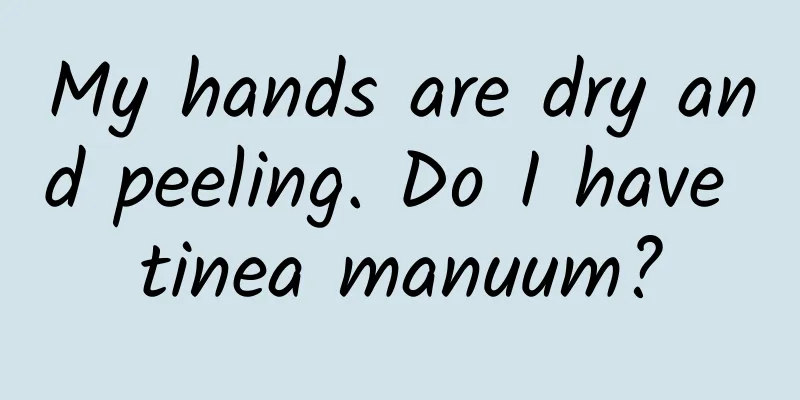Which disinfectants can effectively inactivate the new coronavirus? Which disinfectants are effective against the new coronavirus?

|
The new coronavirus is a highly contagious new virus that can be spread through various channels. Many people have been infected and sick. In order to avoid viral infection, disinfection must be done well. So what disinfectant can kill the new coronavirus? Let's take a closer look! Which disinfectants can effectively inactivate the new coronavirus?75% ethanolDisinfectant alcohol specifically refers to medical alcohol with a concentration of 75%. Alcohol can denature proteins. Since the new coronavirus has a protein coating on the outside of the virus, it can be killed by alcohol. Why do we emphasize 75% alcohol concentration? Shouldn’t 95% concentration be more effective? In fact, if the alcohol concentration is too high, a solidified film will quickly form on the surface of the microorganisms, preventing the alcohol from penetrating into their interior, making it difficult to kill them. If the alcohol concentration is too low, the ability to denature proteins is weak, and it is not easy to kill viruses. However, ethanol is flammable and volatile, with a flash point of about 13°C. The flash point of 75% alcohol disinfectant is about 23°C, making it a Class A fire-hazardous liquid. Therefore, when using alcohol for disinfection, be sure to stay away from fire. In addition, the lower explosion limit of ethanol is about 3.3%. The wiping method should be used for disinfection, and spraying disinfection is prohibited indoors. Chlorine-containing disinfectantsChlorine-containing disinfectants refer to a class of disinfectants that can produce active hypochlorous acid with bactericidal effects in water (such as 84 disinfectant, bleaching powder, sodium hypochlorite, etc.). The main ingredients of 84 disinfectant are sodium hypochlorite (NaClO) and a small amount of surfactant. It is usually a colorless or light yellow liquid. It is called 84 disinfectant because Beijing Ditan Hospital developed this disinfectant in 1984 that can quickly kill various hepatitis viruses. 84 disinfectant has a pungent smell and its effective chlorine content is 5.5% to 6.5%. NaClO can be hydrolyzed to produce hypochlorous acid (HClO), which is also the secret "weapon" of 84 disinfectant. Because HClO is weakly acidic, it has strong oxidizing properties and can oxidize and denature reducing substances (bacteria, viruses, etc.), thereby playing a disinfecting role. CO2 (carbon dioxide) in the air dissolves in NaClO solution and can react with NaClO to obtain HClO with bleaching properties. Peroxide disinfectantsChlorine dioxide, hydrogen peroxide and peracetic acid are the representative substances of peroxide disinfectants. Among them, peracetic acid was well known as the main force for disinfection in public places during the SARS epidemic in 2003. Peracetic acid (C2H4O3) has a strong oxidizing property, which has the effect of sterilization and disinfection. However, most peroxide disinfectants are unstable and should be stored in a ventilated and cool place. The effective content needs to be measured before use. The prepared diluted solution should not be stored for more than two days at room temperature. Due to the strong corrosiveness and irritation of peracetic acid, the container for preparing the disinfectant should be made of plastic. Long-term use will cause damage to the eyes and respiratory mucosa. When preparing peracetic acid, avoid mixing it with alkali or organic matter to avoid violent decomposition or even explosion. Therefore, it is generally not recommended for household use of peracetic acid. Other less common disinfectantsIn addition to some common disinfection methods, the National Health Commission's diagnosis and treatment plan also lists ether and chloroform, which are also considered effective against the new coronavirus. However, ether is flammable and explosive, and chloroform can easily produce highly toxic phosgene that can cause death if not properly stored. Therefore, these dangerous goods are rarely used in home life. Antibacterial hand sanitizerThe common antiseptic hand sanitizers on the market generally use two types of bactericides (or antibacterial agents). One is chlorine-containing phenols, the representative substance is para-chlorometaxylenol (PCMX); the other is quaternary ammonium salts, the representative substance is benzalkonium chloride (BAC). Although they all have "chlorine" in their names, they are very different from the chlorine-containing disinfectants mentioned above. When purchasing, be sure to check the active ingredients. There is some controversy in the academic community as to whether this type of disinfectant can kill the new coronavirus. Some people think it has no effect, while others think it can kill viruses at a certain concentration. However, it is confirmed that it can be used to kill various common bacteria and influenza viruses. Washing hands frequently, using the seven-step hand washing method, rinsing with running water and using hand sanitizer is also an important step in disinfection. Ineffective disinfectants on the market1. Phenol and quaternary ammonium salt disinfectants There are two other common types of disinfectants on the market, mainly parachlorometaxylenol (PCMX) and benzalkonium chloride (BZK). These disinfectants are only effective against bacteria and some viruses. Benzalkonium chloride is ineffective against the new coronavirus, and there is no clear evidence that parachlorometaxylenol is effective against the new coronavirus. Therefore, these disinfectants can be used for daily household disinfection, but they are ineffective for disinfection of this epidemic. Therefore, when purchasing disinfectants, you must read the ingredients carefully and never rely on the word "disinfectant" to purchase them! 2. Iodine-containing disinfectants Common iodine-containing disinfectants include iodine tincture, which can kill various bacterial propagules, fungi, some viruses and mycobacteria except bacterial spores, and are medium-acting disinfectants. They are mostly used for disinfection of skin and mucous membranes, not suitable for furniture disinfection, and have no clear effect on the new coronavirus. How to Disinfect Indoors During the Novel Coronavirus1. Heating There is no doubt that coronavirus is very sensitive to heat, and its survival ability will decrease significantly as the temperature rises. Heating at 56 degrees for 30 minutes can kill coronavirus. Recommended method: Boil dishes and other items that are eaten directly in water once a day for 10 minutes each time. If conditions permit, you can buy a steam sterilizer. If the items cannot be boiled, you can choose the following sterilization methods. During the Spring Festival, it is inevitable to dine out and entertain friends and relatives. It is best to sterilize the bowls and chopsticks with steam or boil them in boiling water. Do not eat raw or cold dishes; try to eat those cooked in a hot pan. 2. Acid treatment Many people use this method incorrectly. For example, edible vinegar, including white vinegar, is not used for fumigation, but is best sprayed or soaked. The pH value of edible vinegar is 2.9, and the pH value of white vinegar is about 2.4. Under this pH value condition, viruses can be completely killed. Recommended method: Soak items in white vinegar for 30 minutes. Some items that cannot be heated, such as plastic products, can be soaked in white vinegar to kill viruses. 3. Disinfectants There are many types of disinfectants at present, and the bactericidal effects vary greatly. Currently commonly used ones include chlorine-containing disinfectants, hydrogen peroxide solutions, Sanisol, 75% alcohol, etc., which can kill or inhibit viruses. How can people at home prevent the new coronavirus?1. Open windows for ventilation Depending on the specific weather conditions, ventilate the room 2 to 3 times a day, each time for no less than half an hour. During ventilation, everyone should keep warm. 2. Wash your hands frequently Be sure to wash your hands when you go out and come home; wash your hands after touching objects that may be contaminated, or disinfect them with hand sanitizer. 3. Change clothes frequently Change and wash clothes frequently when going out. If necessary, disinfect them by boiling them in boiling water, or soak them in 84 disinfectants (use according to the product instructions). What disinfectant to use to prevent the new coronavirus? How to choose disinfectant to eliminate the new coronavirus? How to prevent the new coronavirus at home? 4. Keep your home surfaces clean Door handles, telephones, desktops and other surfaces that are frequently touched by hands should be cleaned every day. If necessary (such as when there are guests visiting your home), they can be wiped and disinfected with alcohol or 84 disinfectant (use according to the product instructions). 5. Cups, bowls, chopsticks and other tableware Put the tableware that needs to be sterilized in a special pot and boil it for more than 15 minutes. 6. Take good care of oral and nasal secretions When family members cough or sneeze, they should cover their mouths and noses with tissues. Used tissues and other garbage should be placed in a separate garbage bag and disposed of in a timely manner. Other family members should avoid contact with them. 7. To prevent pneumonia, disinfect moderately and avoid excessive disinfection that may cause chemical pollution. |
>>: When will the new coronavirus epidemic reach a turning point?
Recommend
I have been diagnosed with vascular calcification, but I also have osteoporosis. Can I still take calcium supplements?
An aunt told Huazi that she had a checkup a while...
I feel my stomach moving sometimes when I am three months pregnant
After pregnancy, the life of an expectant mother ...
How to lose weight during confinement
During the confinement period, women need to eat ...
What are the dangers of eating betel nut for girls?
Many of our friends don’t like betel nut very muc...
What is the cause of blood in urine during early pregnancy?
Pregnant women should pay attention to every deta...
How many days after taking birth control pills will your period come?
How long does it take for my period to come after...
Is elevated triglyceride harmful to the human body? At what level do you need to take medicine?
A friend told Huazi that his cholesterol level wa...
How can vulvar leukoplakia be cured?
Maybe many people don’t know what vulvar leukopla...
Lower body spray
For unmarried girls, if they want to meet their p...
How many cups does a bra have?
Many women are blind when choosing underwear. The...
How should you choose apples that are sweet and delicious? Will candy apples get sweeter as they age?
Mature apples will emit a fruity aroma. Apples wi...
What causes vulvar itching and leucorrhea?
Normal leucorrhea should be white or transparent ...
What to eat when pregnant women have diarrhea
Pregnant women belong to a special group of peopl...
What is the appropriate diet for patients with chronic liver disease?
This is the 5345th article of Da Yi Xiao Hu...
Can a unicornuate uterus make you pregnant?
Unicornuate uterus is a disease of human uterine ...


![[Medical Q&A] Why are there huge differences in the hemoglobin levels of newborns during multiple tests?](/upload/images/67f0fc77beb9f.webp)






